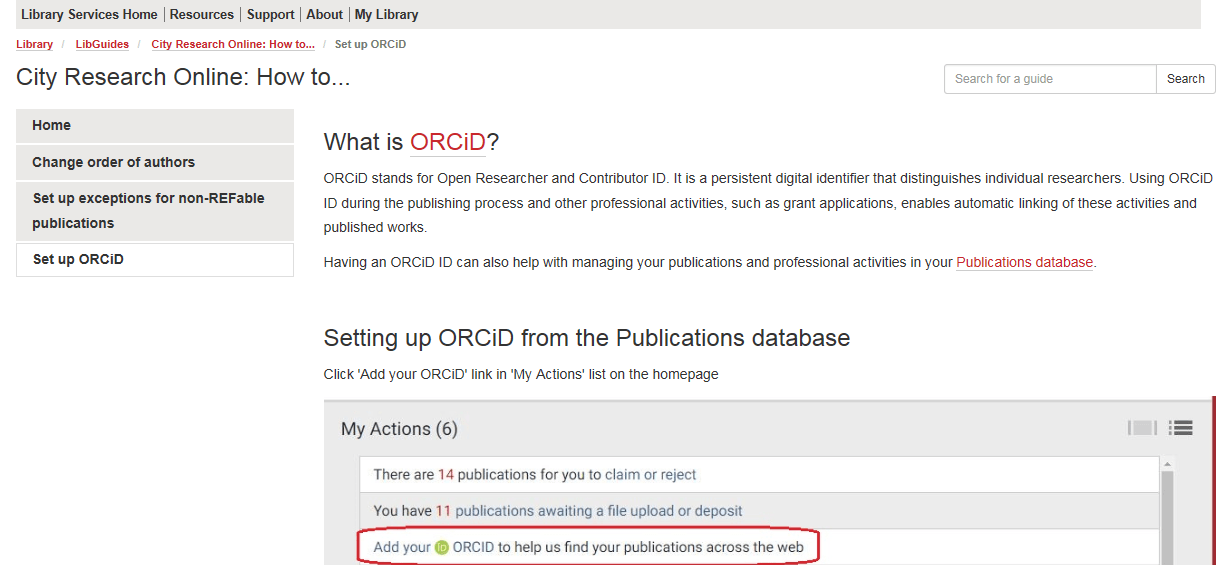What is ORCID?
ORCID – which stands for ‘Open Researcher and Contributor ID’ – is a system whereby researchers are given a unique digital identifier, which distinguishes them from other researchers. This can be very useful when you share the same name with other people!
In addition, by using an ORCID ID during the publishing process and other professional activities (e.g. grant applications), this will facilitate automatic linking of these activities and published works.
How to set up an ORCID ID and link it to City Research Online
Setting up your ID is free and easy to do. The best way to do it is through the City Research Online Publications database, because having an ORCID can help with managing your publications and professional activities in the database. Lenka Shipton, the Digital Repository Librarian, has created a handy guide to setting up and linking your ORCID.

Other ways you can use and publicise your ORCID
Your ORCID can be used in many ways. Here are some suggestions:
- Grant applications, e.g. for Wellcome Trust grants.
- Certain journal submissions (e.g. IEEE journals and Taylor & Francis and Routledge journals).
- Webpages and profile pages. For example, you can associate your ORCID with your Scopus author profile. Another example relates to legal research: if you have an Author Profile Page on HeinOnline, you can add your ORCID to your author page.
The benefits of ORCID
To sum up, the benefits of an ORCID include:
- Having a unique identifier which distinguishes you from other researchers.
- It is an identifier which you can keep with you, even if you move institution.
- It can save you time by linking your grants and publications together. By adding your ORCID to the City Research Online Publications database, this will help the Publications database to pull in the outputs which have your ORCID attached to them. But please always remember to do a manual check of the Publications database, to make sure that all your publications have been recorded correctly.
If you have any questions about ORCID, please do not hesitate to contact your Research Librarian.